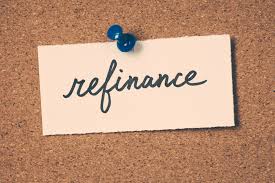At the end of every mortgage term, you have to renegotiate or renew the terms of your mortgage. However, you may not want to wait until then; you may want to refinance. Follow complete guide to mortgage refinancing.
Refinancing is simply replacing your current mortgage loan with a different one, usually with different terms to best suit your situation and goals. But don’t simply go into a refinance thinking you’re going to save money. There is usually a cost associated with a refinance.
Usually, though, the rewards will vastly exceed the costs: especially if you’ve done your research and figured out what it is you want to do.
So, what do you need to know before you refinance your mortgage?
Determine The Goal Of A Refinance
Refinance offers come in all shapes and sizes. Because of this, it’s very easy to be sold on a refinance that simply doesn’t fit your goals.
Ask yourself the following questions:
- Do you want to lower your monthly payments?
- Want to lower your overall loan cost or current interest rate?
- Need to get some cash out of the equity of your home?
- Do you want to utilize the appreciation of your home’s value to reap some rewards?
There are other considerations as well, such as refinancing for the purpose of real estate investing. We will not go into that here, as that is outside the scope of this article.
Once you’ve figured out your main goal for your refinance, you need to take a hard look at your situation. There is list of guides to mortgage refinancing available online.
Look At Your Financial Situation
Ask yourself the following questions:
- Has your income gone up or down considerably in the past year?
- Has your credit score gone up or down considerably in the past year?
- Is your financial situation similar or the same as it was at the start of your mortgage?
Your main objective needs to align with the present day reality of your financial situation. You may need to lower payments because your income has gone down.
Not everyone is going to be able to refinance their home at the most favorable terms. If your income or credit score has gone down considerably in the past year, you may find that your overall loan cost may go up.
In this situation, it’s recommended to refinance ONLY if you will either:
- Get a short term cash infusion to help remedy your situation
- Lower your payments enough to improve your situation over the course of your loan
If your income or credit score has gone up, or even stayed the same, you may find that the current terms of your mortgage are expensive. It will be easier to lower your overall loan cost because it’s possible you could get a lower interest rate and a shorter payback period.
In this situation, it’s recommended to refinance ONLY if you will either:
- Be able to afford the increased payments to achieve a lower overall loan cost
- Be able to put down an additional down payment to recoup equity and lower loan cost
A refinance will require verification of your income, credit, and your assets. It will count as a hard inquiry on your credit. Not only that, but this verification may disqualify you from some refinance offers.
Since your financial situation will determine your refinance goals AND the outcome of your refinance, it’s important to assess it honestly and carefully.
Compare and Contrast Different Refinance Offers
As we said before, refinances come in all shapes and sizes. It’s up to you to speak with mortgage lenders (including the one you’re currently with) to determine what refinance will give you the best result for your objective.
If you go into a loan office knowing exactly what you want out of a refinance, it will be much easier for your mortgage broker to find the refinancing plan you want.
Some common refinancing options are:
- Rate-and-Term Refinancing: This is where you negotiate a new interest rate, different term lengths, and different amortization lengths. Your interest rate describes how much you pay in interest. Term length describes how long you’re locked into those specific mortgage terms for. Your amortization length describes how long you will be paying back your mortgage given the terms. Changing your interest rate and amortization length will change the amount you pay every month as well as your total loan amount.
- Cash-In Refinancing: Cash-in describes paying down additional cash on the mortgage. This is usually done to shorten the amortization length and, ultimately, your total loan amount.
- Cash-Out Refinancing: Cash-out is when you take out a loan for more than the current balance on the mortgage. This allows you to get the existing amount out as a cash payment. You can do this to get value out of home equity in cash. This cash infusion can then be used for whatever you need.
The United States federal government also offers various ways to refinance. If you currently have a loan with the FHA, USDA, or VA, you may be able to refinance your loans with them. They do not require additional income verification and do not provide a cash-out option, meaning you cannot get a cash payment from the refinance.
What Will Refinancing Do To Your Credit?
In the short run, refinancing will lower your credit score for two reasons.
First, you’re getting a hard inquiry on your account before you even refinance. This will dock your credit score a small amount.
Second, when you refinance, you are essentially closing a mortgage account and replacing it with a new one. This will affect the average age of your accounts and will lower your score.
However, in the long run, it could increase your credit score substantially. Why?
If you weren’t able to make payments on your mortgage before the refinance, whereas afterward you are able to, your credit score will slowly improve as you make more payments.
When you lower your total loan amount, your credit score will improve as the amount of debt compared to available credit will go down.
If you lower the amortization length (and thus shorten the time it takes to pay off the mortgage), your credit score will go up over time. However, the effects of this will not become apparent for quite some time.
Want to refinance your mortgage, but having trouble qualifying due to poor credit? Give The Credit Pros a call! We’ll help repair your credit, dispute errors on your credit report, and help you get back on track financially. Call 1-800-411-3050 today!






